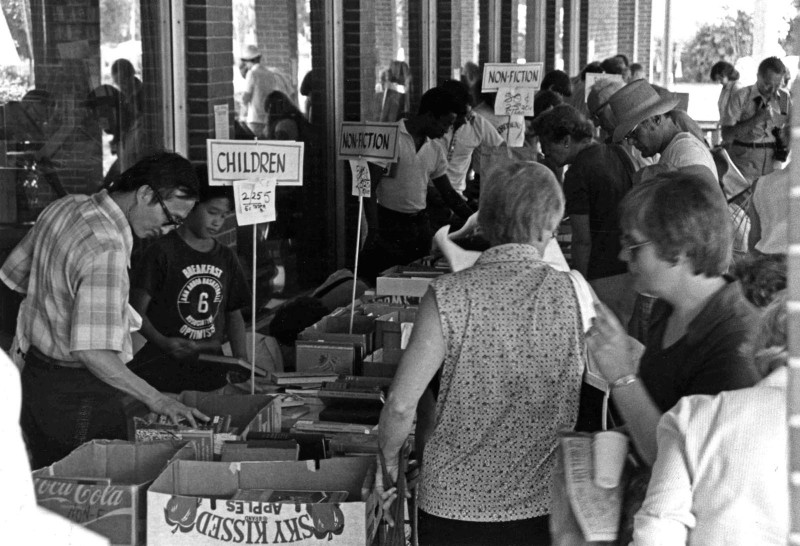Dig Deep: Sara Tea Reclaims Pieces From The Past on "Songs for Discarded Souls" EP

Sara Tea chronicles a cathartic journey of reclamation on Songs for Discarded Souls.
The Chelsea singer-songwriter / producer unearths past fears and forges a new path for the future on her debut EP.
“You get this recipe of thoughts, feelings, and sounds, and you don’t know the impact of it. We do what we have to survive, and it’s a luxury to reflect sometimes,” Tea said.
“We piece together the life we have to get where we have to. The moments that we can reclaim pieces of ourselves … I think there is healing that can come from that. I hope that we all in our own way can do that to the best of our ability.”
Tea suffers from postural orthostatic tachycardia syndrome (POTS) dysautonomia, which often begins after a major surgery, trauma, or a viral illness. It causes symptoms when you transition from lying down to standing up, such as a fast heart rate, dizziness, and fatigue, and creating Songs for Discarded Souls was one way she dealt with the symptoms.
Throughout the EP, Tea finds healing through five intimate tracks steeped in experimental soundscapes. Ethereal elements of ambient music, trip-hop, and indietronica seamlessly fuse with her lush vocals.
Big Picture: Ann Arbor songwriter Mark Zhu displays Confidence and Growth on recent Collaborative and Solo Releases

Mark Zhu presents a vivid picture on the song “paint the world red.”
The pop singer-songwriter worked with hip-hop / EDM producer Felix Lahann to showcase growth and determination on this empowering hip-hop anthem.
“By openly sharing our personal experiences, we gain a sense of catharsis and self-acceptance,” said Zhu, who graduated from Ann Arbor’s Skyline High School in June.
“It reminds us that we’re not alone in our struggles and that vulnerability can be a powerful tool for personal growth. Writing this track allowed us to express our vulnerabilities and showcase the strength that comes from embracing them.
“We wanted to create a song that could serve as a source of empowerment and encouragement for listeners, so the idea of ‘painting the world red’ represents how our music, ideas, and confidence is contagious enough to influence others.”
Bold Ambition: Adam Labeaux Explores the Power of Courage and Vulnerability on “Brace Face” Album

Adam Labeaux searches for the true meaning of courage in himself and others on Brave Face.
The folk-rock singer-songwriter and multi-instrumentalist explores the power of tenacity, vulnerability, and authenticity on his latest album.
“It does have a lot to do with these central themes, and these are things I tend to touch on a lot, including the human condition,” said Labeaux, who resides in Ann Arbor.
“I tend to write dark folk, and I gravitate toward this subject matter and a focal point that maybe people don’t want to look at all the time. But I always have hope, and I always feel there's positivity to come out.”
That positivity and courage shine across Brave Face’s dozen tracks, which feature earnest lyrics, passionate vocals, and ‘70s-inspired folk-rock instrumentation flavored with jazz and soul. Imagine if Labeaux formed a new supergroup with members of the E Street Band, Steely Dan, and Toto.
“I’m the first to admit that sometimes I write songs to give myself words of encouragement that I’m not getting from someone else,” said Labeaux about his fourth album.
“If nothing else, I find that when I’m at my lowest and when I’m most manic that usually it means I haven’t been writing enough. I haven’t been expressing it, and I really need to get into that space and have that cathartic moment.”
Sounds of the City: Ann Arbor Celebrates Inaugural Make Music Day on Summer Solstice

The international Make Music Day offered sumptuous sounds for the summer solstice.
The inaugural Ann Arbor edition on June 21 included nearly 30 acts at 13 venues across town and celebrated a variety of genres, including jazz, Indian classical, folk, blues, power-pop, R&B, flowerpot music, electronic, and more.
The Ann Arbor District Library coordinated the free daylong music event, which featured amateur and professional musicians performing at theaters, parks, art galleries, coffee shops, and other community spaces.
AADL and the local community captured videos and photos from the Make Music Day performances:
Between the Lines: The City Lines use a mix of Americana, power-pop, and punk to explore emotional 'Memories' on second album

The City Lines’ vocalist, rhythm guitarist, and songwriter Pat Deneau links personal stories as a father, husband, firefighter, and tribal member into a perceptive collection of songs on his band’s latest album, Analog Memories.
“Particularly, I like the idea that every song—kind of like city lines—butts up to each other … and continues some sort of throughline,” said Deneau, who is a firefighter with the Ann Arbor Fire Department and a member of the Sault Ste. Marie Tribe of Chippewa Indians.
“I like how the first tune ‘Different This Year’ opens up with this thought like, ‘OK, a fresh start,’ and I reference [our first album] Waiting on a Win in the second line. It’s this idea of ‘I’m tired of waiting on wins; I just gotta go out and get one.’
“That feeling is carried through to the end of the record on the final song [‘Finding a Way’] where I’m singing to my daughter. The notion there is I have to be better for her and how do you get there? You just have to find a way.”
While wrestling with existential ideas on Analog Memories’ seven tracks, Deneau finds his way forward through spirited choruses, propulsive power-pop-punk instrumentation, and a touch of classic Americana twang.
“There’s a line from ‘Far Enough’ that says ‘Looking back far enough / So I can move forward,’” said Bob Zammit, The City Lines’ drummer. “If you’re going to grab a lyric and be like, ‘Here’s the creative brief for what we’re doing here after the fact,’ I think it’s that.”
The City Lines will bring their Analog Memories tracks to life on June 21 outside the Downtown Library for Make Music Day, a free musical celebration with concerts by musicians across the city on the summer solstice.
Bandmates Skott Schoonover (bass), Jason Rhoades (lead guitar), and Megan Marcoux (acoustic guitar, backing vocals), will join Deneau and Zammit for the performance.
We recently spoke to Deneau and Zammit about their backgrounds, the band’s formation, the creative process for Analog Memories, select tracks from the album, their Make Music Day performance, and upcoming plans.
Holistic Healing: The Prog-Rockers in Cat Lung Find Slivers of Hope and Connection on “Fragments” Album

After feeling torn apart during the pandemic, Cat Lung assembled a holistic approach to healing on Fragments.
The Ann Arbor prog-rock quartet replaced shards of disillusionment and loss with slivers of hope and connection on its sophomore album.
“I was doing a lot of the lyric writing over the pandemic, and there was a lot of stuff that was going on—societal unrest, oppression, violence, climate change—you name it,” said Diane “Impi P.” Crang, one of the band’s vocalists and a multi-instrumentalist. “There’s so much nastiness in the news, and that’s where the lyric ‘what a world’ came from.’”
That lyric repeatedly appears in Cat Lung’s insightful title track, which features guitarist Pamela “Pammy Whammy” Benetti, bassist Steven “Even Steven” Crang, and drummer-percussionist/vocalist David “Dr. David” Beauchesne with Diane “Impi P.” Crang trying to process a divisive world alongside chaotic instrumentation.
Crang sings, “What a world, what a world / What a world we’re living in / When does sanity begin? / Patience gradually wearing thin / Graciousness can be found within.”
“The music for this track was initially written by Pam about 30 years ago, and we dusted it off, polished it up, and I wrote lyrics for it. The song is an observation, as well as a plea for us all to do better—for ourselves and for each other,” said Crang, who joined the band after husband Steven Crang, Benetti, and Beauchesne met through two different craigslist ads in 2016. “The four of us are all pretty done with the ugliness in the world and hope for better days ahead. In the end, Fragments being the title of the album was one on which we could all agree.”
Music in Motion: The Carolyn Striho Group brings Detroit energy to AADL June 1

Carolyn Striho takes a fearless approach to life both onstage and off.
The singer-songwriter has had a storied career in various Southeast Michigan creative scenes: She’s been a member of early Detroit punk quartet The Cubes; a frontperson for the longtime rock ‘n’ roll collective Detroit Energy Asylum; a DJ for WDET 101.9-FM’s “Radios in Motion” punk, new wave, and underground music show; a touring musician with Patti Smith and an onstage performer with Don Was; and a solo artist and poet.
“I do know it’s showed me that you must keep going and work on your craft,” said Striho, whose latest release includes a 2019 collection of poems and lyrics called Detroit (Maiden Energy). “Your music, your art, and your work are what make you unique, yourself, and original.
“But I think with new music coming out with my former band Detroit Energy Asylum and the new Hit Girls: Women in Punk book, and other books I’ve been in, my music past is being documented more and more.”
Striho brings that musical past and present to life for a June 1 show at the Downtown branch of the Ann Arbor District Library with her bandmates, which include her husband/guitarist Scott Dailey, bassist Christopher Spooner, and drummer Lauren Johnson.
“And as much as I loved being on stage for so many years, the energy-first stage thing has changed, but I never know what I might end up doing onstage,” she said. “In the meantime, I’m grateful for my big past, and that I now love recording, too.”
In advance of her upcoming show, we recently spoke to Striho about what inspires her creatively, her Detroit (Maiden Energy) collection and potential plans for another volume, a new single with Erin Zindle, her show setlist, and new material with Dailey.
Going Platinum: Friends of the Ann Arbor District Library Reflects on 70 Years of Supporting AADL Patrons and Programs

In May 1953, the Friends of the Ann Arbor District Library (FAADL) shared a historical moment alongside Ernest Hemingway.
The library’s volunteer organization officially became a nonprofit the same month Hemingway won the Pulitzer Prize for Literature for The Old Man and the Sea.
Seven decades later, Hemingway’s novella still graces the library’s shelves as FAADL celebrates its 70th anniversary of supporting Ann Arbor District Library (AADL) patrons and programs through used book sales. From library locations to summer bookmobiles to online bookstores, the group has played a pivotal role in AADL’s evolution.
“[FAADL] was really instrumental in the location of where the downtown library sits, and it was instrumental in the branches,” said Rachel Pastiva, FAADL’s director, while reflecting on the group’s platinum anniversary.
That same year, FAADL advocated for a separate and central location for the library since it was attached to an old high school at State and Huron streets. By 1957, the new location ended up being the current downtown site at Fifth Avenue and William Street.
Fruitful Experiment: Chris Bathgate explores thematic writing on his new album, “The Significance of Peaches”

This story originally ran on June 2, 2022. We're featuring it again because Chris Bathgate plays AADL's Downtown Library on May 26.
Chris Bathgate sees his first album in five years, The Significance of Peaches as "an experiment in thematic writing and recording with limitations … the significance of peaches is not necessarily the thread or some keystone idea. It is like a loose fishing net that I can cast into my life and see what I harvest."
Throughout The Significance of Peaches, released on Ann Arbor's Quite Scientific Records, Bathgate searches for a holistic sense of self while fostering a spiritual connection to the outside world using pithy lyrics and nature-rich imagery set atop a pump-organ-drenched landscape.
“The peach thing is from my total adoration for the stone fruit itself as the corporeal experience of physically eating a peach," said the Ann Arbor indie-folk singer-songwriter and multi-instrumentalist. "But I’m also interested in the peach as a metaphor throughout history. The thing I became most obsessed with was its use as a way to describe the ephemeral nature of life, time and joy, moments, and carpe diem.
“Crying in H Mart”: Michelle Zauner’s Memoir Helps Me Process the Loss of My Mother

Each year, I look forward to the summer solstice. There’s something magical about the longest day of the year and the maximum amount of daylight that it brings.
But by June 20, 2020, at the age of 44, my outlook on the summer solstice changed unexpectedly. I awoke early that morning to sunlight streaming through my windows and felt excited about the day ahead.
My husband Brian and I were getting ready to visit my in-laws and celebrate their 50th wedding anniversary with the rest of the family. We were just about the leave the house when we heard an expected knock on our door at 8 am.
I opened the door and saw my father on the front porch looking ragged and exhausted. There was an unrecognizable sadness on his face when he said, “L, Your mother passed away last night.”
Those words punched me right in the gut, and it took me a moment to process what he had just said. My father explained that my mother had a heart attack the night before; she had collapsed instantly and then died.
He tried to revive her before the paramedics came, but it was too late. I was surprised that a heart attack had taken my mother’s life at 75 instead of Alzheimer’s. She had been battling that disease for nearly a decade, and I had prepared myself for that outcome gradually.


































